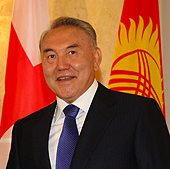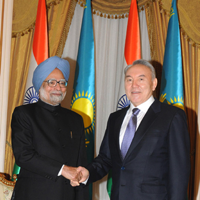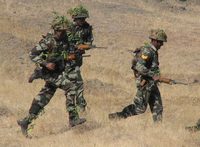
The death of around a dozen people over the weekend in Zhanaozen, Kazakhstan, follows months of reported strikes, bombings and other violence in the western part of the country. The exact reasons for the disturbances are unclear. Labor disputes, clan rivalries and resurgent Islamist militancy all seem to be at work. Whatever the causes, Kazakh authorities should heed the warning represented by the violence and ensure that the country’s upcoming legislative elections are free and fair. On Nov. 16, President Nursultan Nazarbayev dissolved Kazakhstan’s national legislature and established Jan. 15, 2012, as the date for the next parliamentary elections. Since […]


